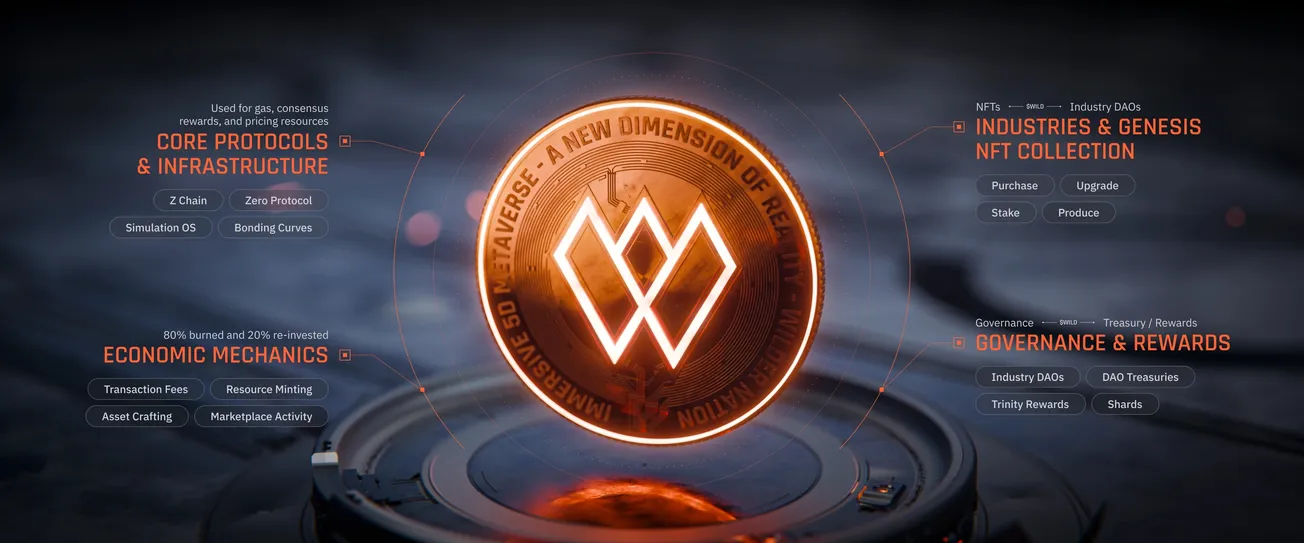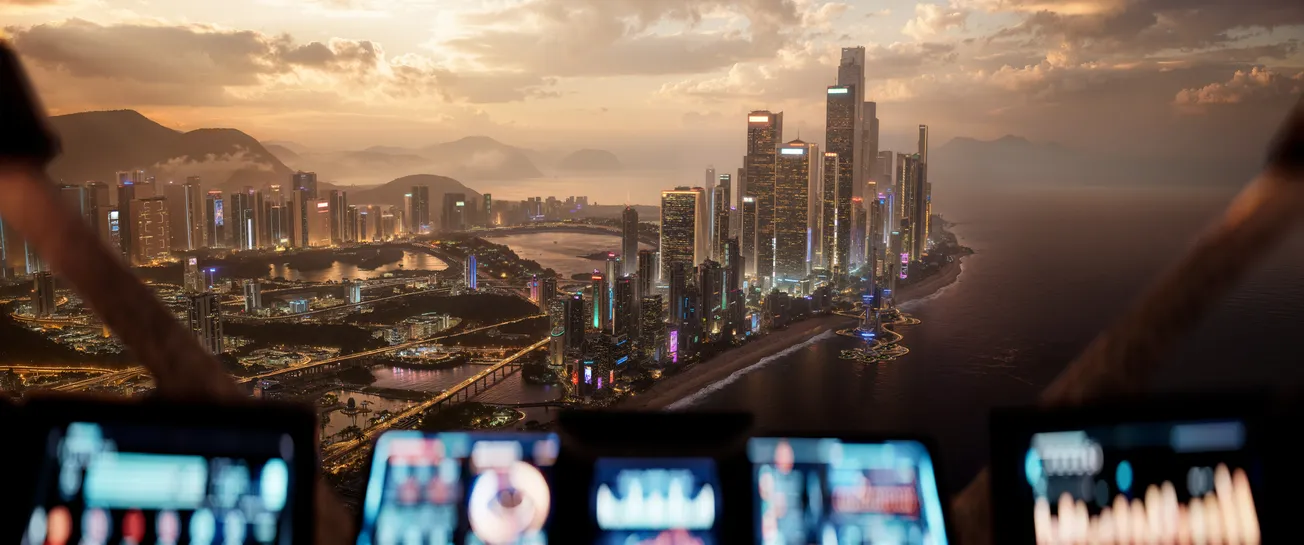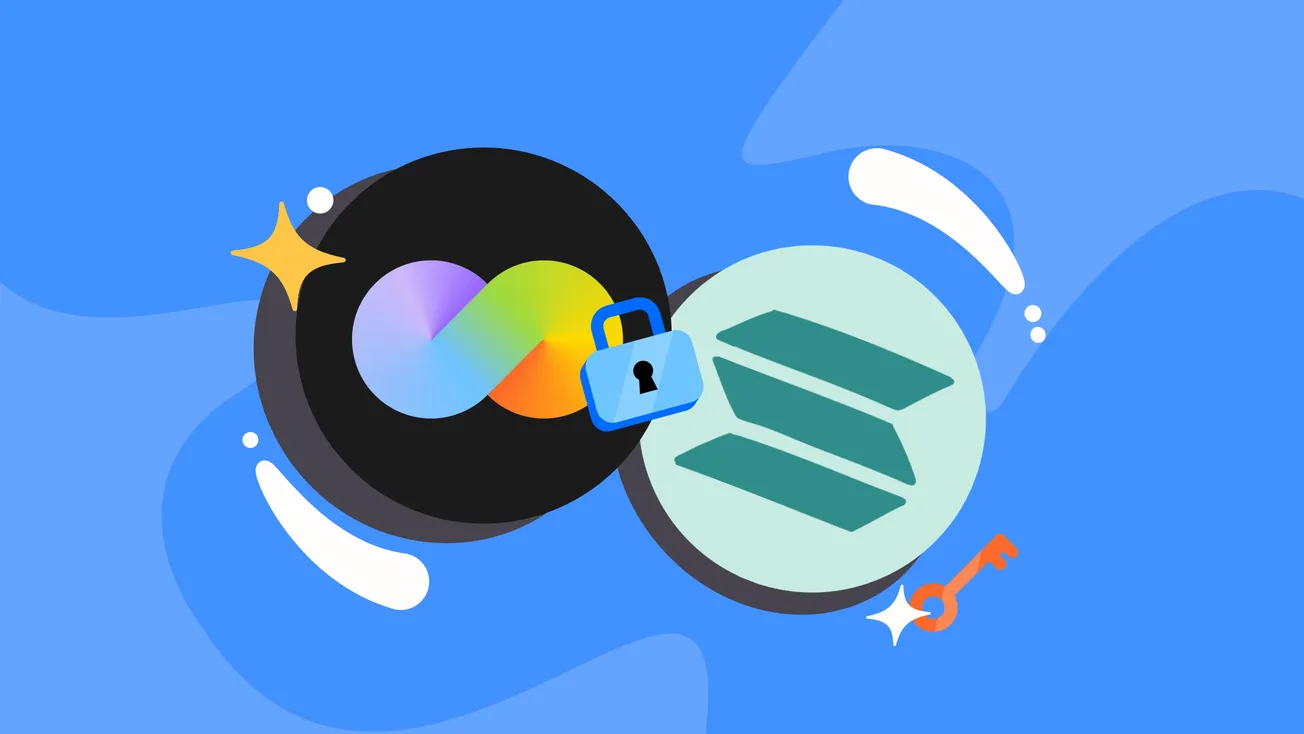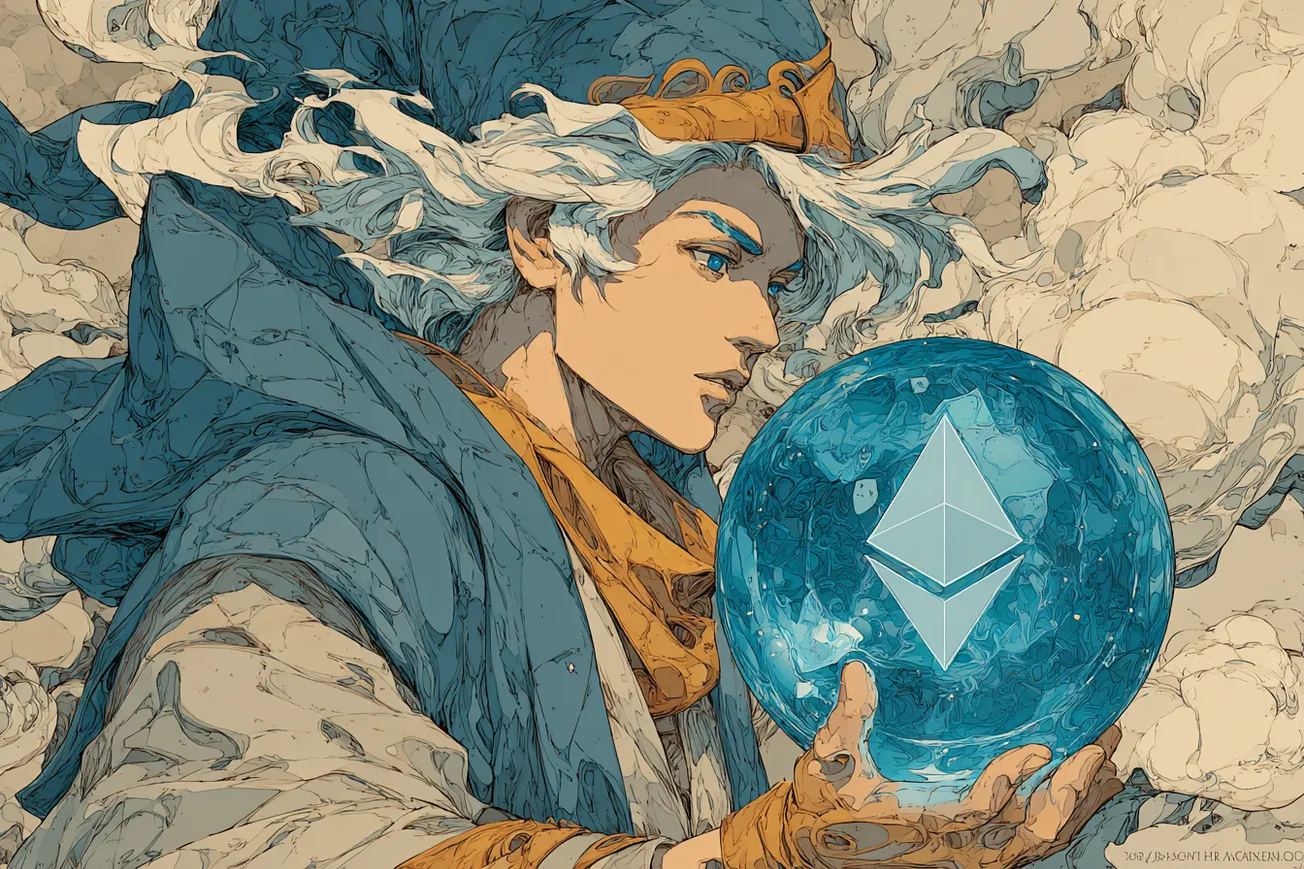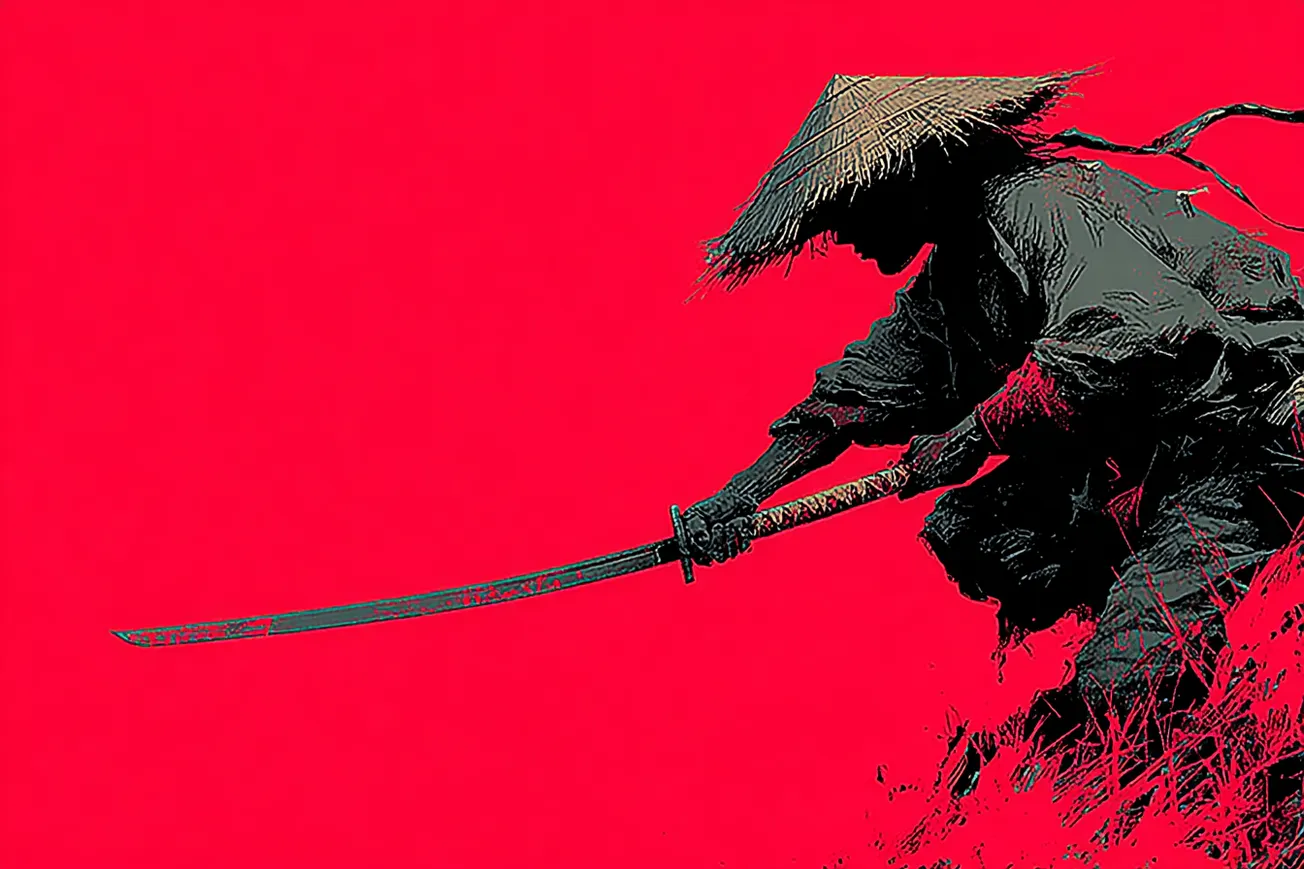Table of Contents
Today, Wilder World published its long-awaited Vision Paper, a comprehensive document mapping the future of a persistent, decentralized Metaverse powered by AGI, virtual reality, and blockchain.
Read the Vision Paper:
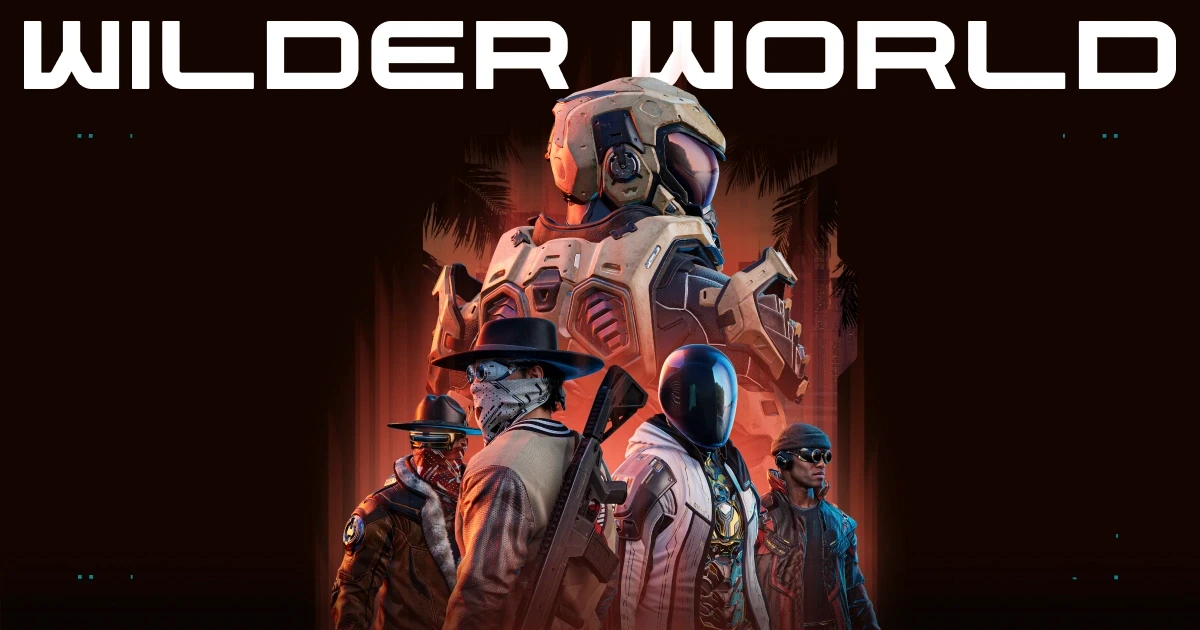
The 100+ page paper details the project's core technologies, economic systems, game mechanics, lore, and long-term governance vision.
“The most consequential technologies of our time—artificial general intelligence (AGI), cryptocurrency and virtual reality—will soon meet in the Metaverse,” the paper opens. “This isn’t a distant future—it’s unfolding now.”
Wiami: The First Playable City in Wilder World
The Vision Paper highlights Wiami, a hyperreal, onchain city modeled after Miami, as the first fully playable city within Wilder World. It spans over 1,024 km²—13.5x larger than GTA V—and blends decentralized land ownership, dynamic weather, and open-world exploration with a persistent player-driven economy.
Wiami is divided into three major zones: The Island, with 6,544 land plots; The Mainland, focused on mining and resource extraction; and the still-unrevealed No Man’s Land. The Island alone features eight unique neighborhoods zoned for residential, commercial, industrial, and mixed use.
“Constructed with geospatial data and custom worldbuilding tools, Wiami is designed as a living city governed by blockchain logic.”
Players can acquire and develop land, build businesses, or participate in missions that impact Wiami’s lore and economy in real time.
Simulation OS: The Full-Stack Metaverse Infrastructure
A major focus of the Vision Paper is Simulation OS, the foundational technology stack behind Wilder World. It connects every layer of the ecosystem—from blockchain to compute, identity, governance, AI, and user interface.

“Simulation OS organizes and combines the necessary infrastructure, components, modules, and protocols that will enable us to create the Metaverse as we imagine it.”
Simulation OS includes the following components:
ZERO
ZERO is the social operating system that unifies identity, messaging, commerce, and governance. It includes:
- ZERO ID (ZID): A sovereign onchain identity system
- Messaging and Phone: Encrypted chat, video, and voice
- Wallet and Marketplace: For cross-chain assets and NFTs
- AI Assistant: A native agent interface for daily support
- DAO Tools: Voting, treasury management, and community governance
ZERO is integrated into Wilder World and available on desktop, mobile, and web.
Z Chain
Z Chain is a high-performance Layer 1 blockchain designed for real-time applications:
- Sub-400ms block times
- 100K+ transactions per second
- Native sharding and zk-SNARK scalability
- EVM-compatible with AggLayer integration
“Z Chain enables four core advantages within a single blockchain environment,” including scalability, fast finality, and cross-chain operability.
It supports gaming, AI processing, high-frequency trading, and decentralized social networks.
The GRID
The GRID is Wilder World’s decentralized compute and data network. It allows real-time execution of complex virtual environments without relying on centralized cloud providers.
“Where blockchains provide consensus, The GRID delivers speed, scalability, and flexibility for general-purpose compute.”
It uses secure virtual machines, programmable consensus, and a peer-to-peer network architecture to power services within Simulation OS.
AURA
AURA is an AI-native OS composed of autonomous agents capable of memory, reasoning, and coordination.
“Unlike today’s large language models... AURA’s Agents exhibit advanced reasoning, maintain short- and long-term memory, and iteratively enhance themselves over time.”
Agents operate within secure environments, coordinate in swarms, and serve players in-game or within ZERO. They can handle tasks like mining, DAO analytics, onboarding, and world-building.
The Wilder World Economy and $WILD
The economic backbone of Wilder World is $WILD, a multi-chain deflationary utility token used for transactions, minting resources, and participating in governance via the Wilder World DAO.
“Fees from transactions are burned, reducing supply over time and aligning long-term incentives between builders, players, and investors.”
The economy is structured through Metropolis, a decentralized production system organized into industries and governed by DAOs. Players extract raw resources, refine them, build in-game assets via blueprints, and trade them across open NFT marketplaces. Genesis NFTs tied to industries offer staking, rewards, and voting rights.

The Trinity Rewards Program further incentivizes ownership of three distinct Genesis assets, unlocking exclusive avatars, airdrops, and access to new zones like Trinity Island.
A Living, Player-Driven Narrative
Wilder World’s lore introduces an alternate universe—FBR—where a scientist named F.G. Wilder developed Artificial Super Intelligence (ASI) to survive an existential collapse.

In our world (OBR), a shadow organization called The FORUM suppresses progress. Wilder World exists as a simulation bridge between these realities, with players shaping its outcome.
“The story of Wilder World is not fixed,” the paper explains. “It is cross-fictional, co-emergent, and evolutionary.”
Players choose their roles (hero or villain), align with or against FORUM forces, and influence unfolding lore through in-game decisions.
Not Just Play—Presence
The paper emphasizes social, creative, and economic layers beyond gaming. Live concerts, AI-powered art galleries, business hubs, and shopping experiences will all be part of the world, alongside user-generated clubs, venues, and narrative spaces.

“Wilder World is not just about play—it’s about presence.”
The ecosystem supports creator tooling, 3D asset generation, smart contract templates, and DAOs to allow anyone—from indie builders to global brands—to contribute meaningfully.
Looking Ahead
Wilder World is currently available in early access, with full public launch expected later this year. It is ranked #9 on the Epic Games Store wishlist leaderboard and is partnered with Samsung, NVIDIA, Polygon Labs, SuperVerse, and others to expand its reach.
“Wilder World is a player-owned, operated, and governed realm, shaped by citizens united to mold this expansive frontier in their image.”
With Simulation OS open-sourced and live infrastructure already operational, Wilder World positions itself not just as a game, but as a new operating system for virtual civilization.

